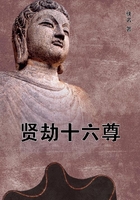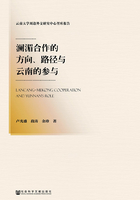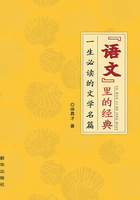Though Blackwell, the official head of the Catholic body in England, hastened to issue a letter urging his co-religionists to abstain from all attempts against the government (7th Nov. 1605), Parliament, without attempting to distinguish between the innocent and the guilty, determined to punish Catholics generally. Recusants who had conformed were commanded to receive the Sacrament at least once a year under penalty of a heavy fine. In place of the ā20 per month levied off those Catholics who refused to attend Protestant service, the king was empowered to seize two-thirds of their estates. Catholics were forbidden to attend at court, to remain in London or within ten miles of London unless they practised some trade and had no residence elsewhere, or to move more than five miles from their homes unless they got the permission of two magistrates, confirmed by the bishop or deputy-lieutenant of the county. They could not practise as lawyers or doctors, hold any commissions in the army or navy, act as executors, guardians, or administrators, appoint to benefices or schools, or appear as suitors before the courts. Fines of ā10 per month were to be paid by anyone who harboured a servant or visitor who did not attend the English service. In order to test the loyalty of his Majesty's subjects it was enacted that a bishop or two justices of the peace might summon any person who was suspected of recusancy, and require him to take a special oath of loyalty embodied in the Act. If any persons not of noble birth refused to take the oath they should be committed to prison till the next quarter sessions or assizes, and if in these assemblies they persisted in their refusal they incurred thereby the penalty of Praemunire.[6]
Both in its substance and particularly in its form the oath of allegiance was objectionable, and whether or not it was designed with the intention of dividing the Catholic body, it succeeded in producing that effect. Many Catholics thought that, as they were called upon to renounce merely the authority of the Pope to depose princes or to make war on them, they could take it as a sign of civil allegiance without abandoning their obedience to the Pope as their spiritual superior.
Others thought differently, however, and as a consequence a violent controversy broke out which disturbed the England Catholics for close on a century. The archpriest Blackwell condemned the oath at first, but in a conference with the clergy held in July 1606 he declared in its favour. Acting on this opinion the lay peers and many of the clergy consented to take the oath. The other side appealed to Rome for a decision, and a brief was issued on the 22nd September 1606, by which the oath was condemned as unlawful. Blackwell neglected to publish the brief probably from motives of prudence, though other grounds were alleged, and in the following year a new condemnation was forwarded from Rome (Aug. 1607). Meanwhile Blackwell had taken the oath himself, and had published letters permitting Catholics to act similarly. As he was unwilling to recede from his position notwithstanding the appeals of Father Persons and Cardinal Bellarmine, he was deposed from his office and George Birkhead or Birket was appointed archpriest (1608). The controversy now became general. James I. entered the lists with a book entitled /Apologie for the Oath of Allegiance/, in which he sought to meet the reasons contained in the papal documents and in the letters of Father Persons and Cardinal Bellarmine. Both writers replied to the royal challenge, and soon hosts of others, both Catholic and Protestant hastened to take part in a wordy war, the only result of which was to disedify the faithful, to turn away waverers from the Church, and to cause rejoicings to the enemies of the Catholic cause. Birkhead, who had been empowered to suspend all priests who did not show some signs of repentance for having taken the oath, acted with great moderation in the hope of avoiding a schism, but at last he was obliged to make use of the powers with which he was entrusted (1611).[7]
The old controversies between the Jesuits and a large section of the seminary priests were renewed both at home and on the Continent. The seculars objecting to the control exercised by the Jesuits in England, in regard to English affairs at Rome, and in the foreign colleges, continued to petition for the appointment of a bishop. Ugly disputes ensued and many things were done by both sides during the heat of the strife that could not be defended. The Holy See found it difficult to decide between the various plans put forward, but at last in 1623 Dr.
Bishop was appointed Bishop of Calcedon /in partibus infidelium/, and entrusted with the government of the English mission. During these years of strife one important work, destined to have a great effect on the future of Catholicism in England, was accomplished, namely the re-establishment of the English congregation of the Benedictines. The Benedictine community had been re-established at Westminster in 1556with the Abbot Feckenham as superior, but they were expelled three years later. Of the monks who had belonged to this community only one, Dom Buckley, was alive in 1607. Before his death he affiliated two English Benedictines belonging to an Italian house to the English congregation, and in 1619 the English Benedictines on the Continent were united with the English congregation by papal authority.[8] The houses of the English Benedictines on the Continent were situated at Douay (1605), at Dieulouard (1606), at Paris (1611), Saint-Malo (1611)and Lambspring in Germany (1643). The members bound themselves by oath to labour for the re-conversion of their country, and the list of Benedictine martyrs who died for the faith in England bears testimony to the fact that their oath was faithfully observed.















